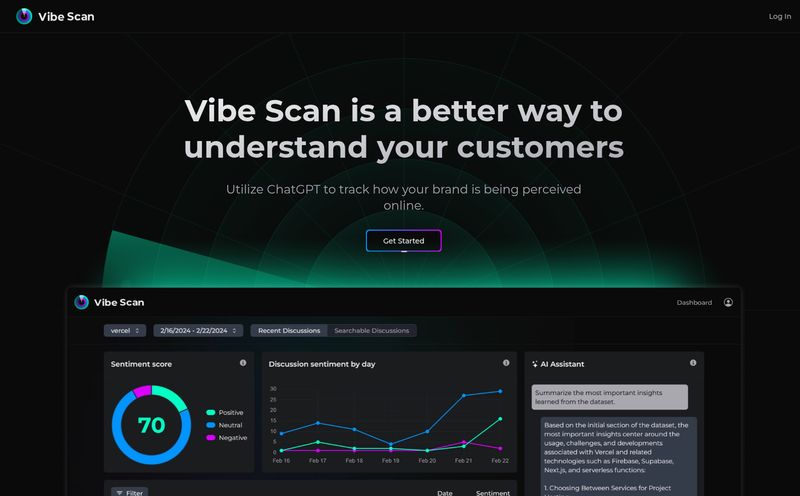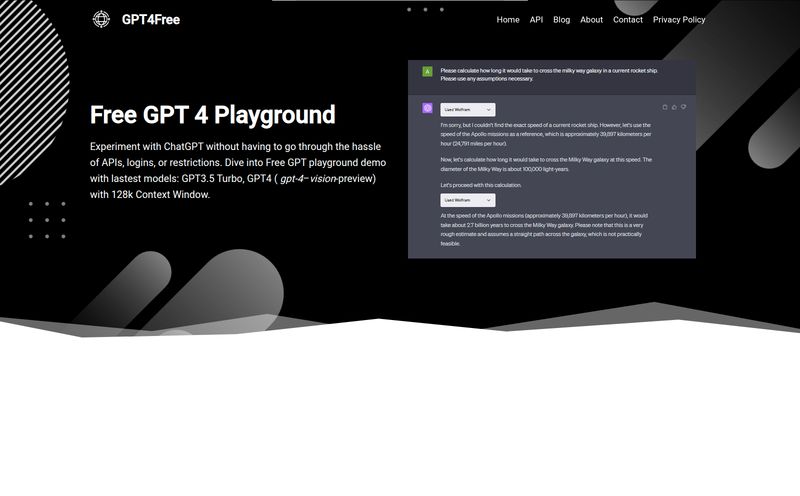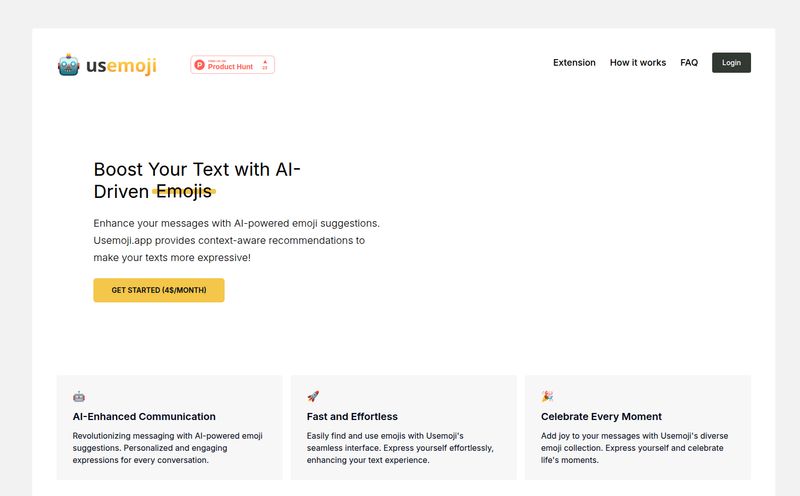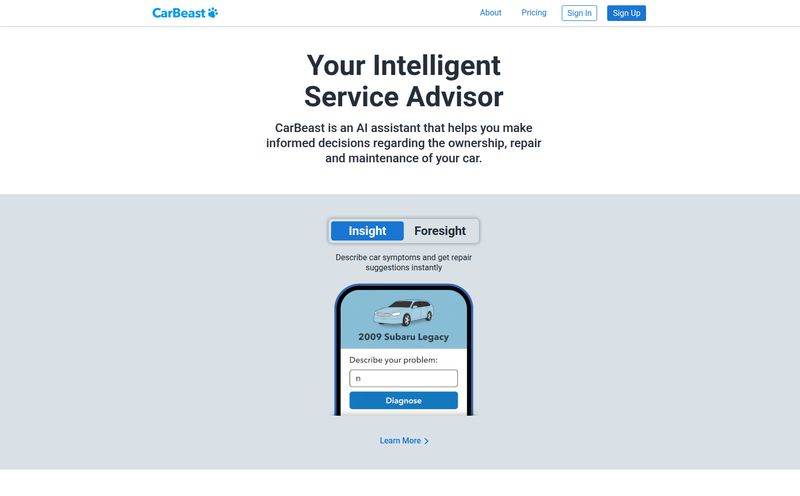Just when you think the browser wars have settled into a comfortable stalemate, someone decides to flip the whole chessboard over. And honestly? I’m here for it. For years, we’ve been stuck in this cycle: Chrome dominates, Firefox holds on for the open-source purists, and Edge keeps popping up to ask if we’re sure we don’t want to make it our default. It’s… a bit stale.
Then along came The Browser Company with Arc, and a lot of us in the tech and productivity space sat up a little straighter. They didn’t just reskin Chromium; they rethought the entire experience. Spaces, vertical tabs, a command bar that actually works. It was a breath of fresh air. So, when whispers started circulating about their next project, a mysterious thing called Dia Browser, my curiosity was definitely piqued.
So what is this thing? Is it an Arc-killer? A companion app? Something else entirely? Let's get into what we know, and more importantly, what we can guess.
What Exactly Is Dia Browser?
Right now, details are scarcer than a clean inbox on a Monday morning. The official line is that Dia is a “new environment built on top of a web browser.” That’s deliciously vague, isn't it? It’s not just a browser; it’s an environment. This suggests something more immersive, maybe more focused than what we’re used to.
Here’s the most interesting part I've managed to dig up: it’s currently in a super-secret alpha test with a very specific group of users. Not tech gurus or developers, but students. They’re apparently using it to help them focus and improve their study habits, particularly during the chaos of finals week. Now that is a fascinating starting point. It tells me Dia isn’t about packing in more features, but perhaps about intelligently taking them away. It's a tool forged in the fires of academic pressure.
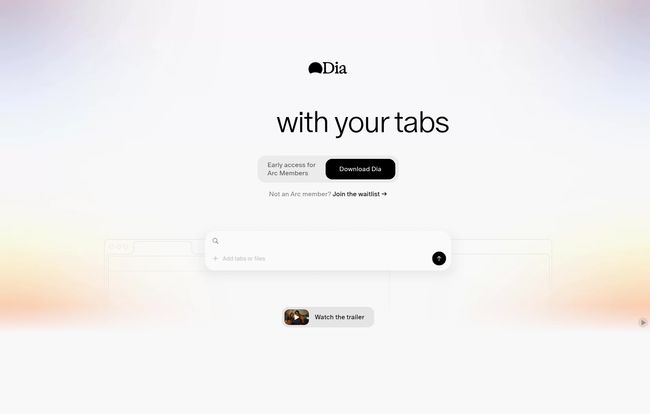
Visit Dia from The Browser Company
Think about it. The browser is the number one source of distraction. One minute you're researching mitochondrial DNA, the next you've watched three hours of videos about people building tiny houses for squirrels. If Dia can genuinely help someone focus, it’s not just a browser, it’s a productivity miracle.
The Creative Minds at The Browser Company
You can’t talk about Dia without talking about its creators. The Browser Company of New York has earned a massive amount of goodwill with Arc. They listen to their community, they ship weird and wonderful updates, and they seem to genuinely care about building a better way to experience teh internet. I’ve been an Arc user for over a year, and while it's not perfect, it’s the first time a browser has made me feel more organized instead of more chaotic.
Their entire philosophy seems to be about questioning the status quo. Why are tabs at the top? Why can’t a browser organize itself? This pedigree is why Dia is so exciting. It's not coming from a massive corporation looking to lock you into their ecosystem. It’s coming from a team of designers and engineers who have already proven they can deliver a thoughtful, human-centric product. They've earned the benefit of the doubt, in my book.
Peeking Under the Hood: Features and Speculation
Since we don't have a full feature list, we have to do a bit of detective work. Let's connect the dots based on the clues we have.
The AI Elephant in the Room
While not explicitly stated, the idea of an “AI Browser” is floating around Dia. It just makes sense. If you’re building a tool for students to study better, AI is the perfect co-pilot. I’m not talking about a simple chatbot bolted on the side. I’m imagining an AI that can:
- Summarize dense research papers into key bullet points.
- Group tabs by topic automatically. Imagine it seeing 10 tabs about ancient Rome and creating a temporary “workspace” for you.
- Generate flashcards from your notes or a webpage.
- Block distractions intelligently. Maybe it learns that you always get sidetracked by Reddit after 20 minutes of work and gently nudges you back on task.
This kind of integrated, ambient AI feels like the next logical step for browsers, and The Browser Company is in a prime position to nail it.
A New Philosophy for Tabs
The landing page has a simple, intriguing phrase: “with your tabs.” It’s not about fighting them or having zero tabs. It’s about doing something meaningful with them. My current browser is a tab graveyard, a testament to all the things I was going to read but never did. The idea of a browser that actively helps me process and organize this chaos rather than just storing it is incredibly appealing. Maybe Dia turns tabs into a to-do list or a visual mind map. The possibilities are genuinely exciting.
How to Get Your Hands on Dia
Okay, slow down there. Dia is in a private alpha, which is an early, early testing phase. It’s invite-only. The website mentions a waitlist and gives priority to existing Arc members, which seems fair. So, if you're desperate to try it, your best bet is to be an active Arc user and sign up for the waitlist. Just be prepared to wait.
And a word of caution: alpha software is called that for a reason. It will likely be buggy, unstable, and missing features. This is for the true early adopters who get a kick out of seeing a product evolve and don't mind a few crashes along the way.
What's the Price Tag?
As of now, there’s no information on pricing. Zero. Given that Arc is free for personal use, it's a safe bet that Dia will be free during its testing phases. What happens after that is anyone’s guess. Could we see a subscription model like Superhuman for email? Perhaps a freemium model where the core experience is free but advanced AI features require a fee? Your guess is as good as mine, but I'd be surprised if they put up a hard paywall from day one.
My Two Cents: Is Dia the Future or Just a Fad?
So, what’s the verdict? I’m cautiously optimistic. I've seen countless “minimalist” or “AI-powered” browser projects flare up and then disappear without a trace. The web is a complicated beast, and building a good browser is monstrously difficult.
But Dia has a secret weapon: the team behind it. The Browser Company has a proven track record of thoughtful design and a clear vision for what the internet could be. Focusing on a niche group like students is also a brilliant move. It allows them to solve a real, specific problem (focus and information overload) before trying to take on the entire world. It’s a classic “do one thing perfectly” approach.
I don't think Dia is going to replace Chrome overnight, and it may not even be for me. But I believe the ideas it’s exploring—ambient AI, intelligent organization, and a truly focused browsing environment—are absolutely the future. And I'll be watching, very, very closely.
Frequently Asked Questions
- What is Dia Browser?
- Dia Browser is a new, experimental browser “environment” from The Browser Company. It's currently in an early alpha testing phase, with a focus on helping students improve their study habits and focus.
- Who created Dia Browser?
- Dia is being built by The Browser Company of New York, the same team that created the popular and innovative Arc Browser.
- Is Dia Browser available to the public?
- No, not at the moment. It is in a private, invite-only alpha test. There is a waitlist you can join, with priority reportedly given to existing Arc Browser users.
- How much does Dia Browser cost?
- There is currently no information available about pricing. It is expected to be free during the testing period, but future pricing is unknown.
- How is Dia different from Arc Browser?
- While both are made by the same company, they seem to have different goals. Arc is a feature-rich, all-in-one browser designed to replace your current one. Dia appears to be a more specialized, minimalist environment focused on specific tasks like studying and deep work, likely with heavy AI integration.
- Does Dia use AI?
- It is heavily implied that AI will be a core component of Dia Browser. Given its focus on helping students study, features like AI-powered summarization, organization, and focus tools are widely anticipated.
References and Sources
For the latest information, keep an eye on the official channels:
